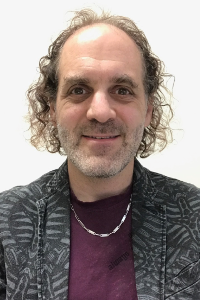Clocks, immunity and cancer in mice and night shift workers

Dr. Nicolas Cermakian
February 8 at 12:20pm in the Fralin Auditorium, Fralin Hall room 102
Hosted by Dr. C. Finkielstein
Nicolas Cermakian is a Professor at McGill University and Researcher and Director of Academic Affairs at the Douglas Mental Health University Institute, in Montreal. After completing a PhD in Biochemistry (Univ. Montreal, 1998), he entered the field of Chronobiology when he started his postdoctoral training in Dr. Paolo Sassone-Corsi's laboratory in Strasbourg, France. He then established his Laboratory of Molecular Chronobiology at the Douglas Institute in 2002. The research in his laboratory deals with circadian clocks in mammals. He has pioneered the work on the circadian control of immune functions, in particular the adaptive (antigen-specific) immune response, and more recently, parasitic infections. He has also been studying the links between circadian disruption and psychiatric diseases, including schizophrenia and Alzheimer's disease. In collaboration with his McGill colleague Dr. Diane Boivin, he also studies molecular and immune rhythms in human subjects under different environmental conditions in relation to shift work. Nicolas Cermakian has been a member of the Board of Directors of the Society for Research on Biological Rhythms (2009-18), and he was the Program Chair for the 2016 conference of this society. He also led the efforts to create the Canadian Society for Chronobiology in 2013 and he serves as President since then.
Most aspects of physiology vary according to the time of day. These 24 h rhythms are generated by endogenous circadian clocks present in most organs and cell types. Disruption of circadian rhythms, as occurs for example in shift workers, can lead to a variety of serious health issues, including cancer, metabolic and cardiovascular problems and psychiatric disorders. Among other physiological systems, immune functions and the cell cycle vary as a function of the time of day. We will show that immune cell clocks are involved in the circadian control of T cell response to antigen presentation in mice, and in the response to parasitic infections. We will also demonstrate the deleterious effects of night shift on immune functions and circadian gene expression in humans. Finally, we will show how acting on circadian rhythms in cancer cells can dramatically impact on tumour growth.
See the papers in the folder at the following link: https://www.dropbox.com/sh/y03u13f36ak7waw/AABZO6wo66yurzHrIrcPODO0a?dl=0

This seminar will be livestreamed on the Fralin YouTube channel, but will not be recorded.


